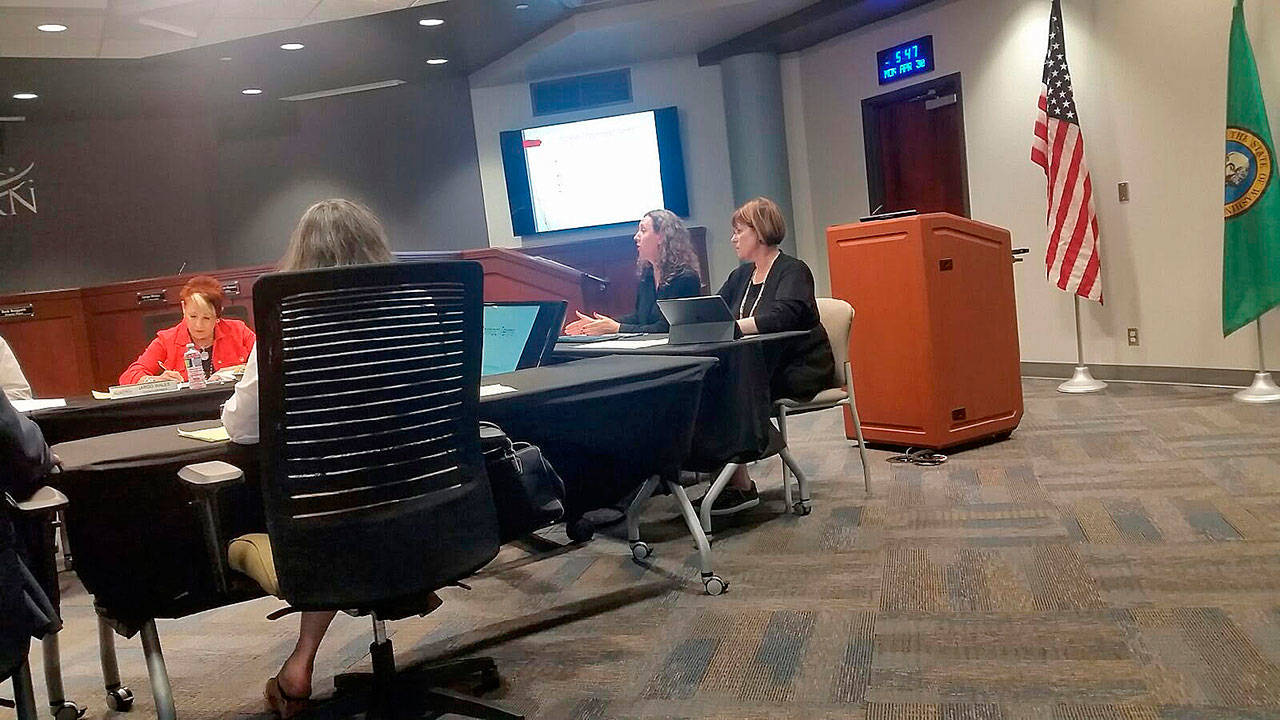Picking up trash and hauling it away is a dirty job, but as the saying goes, someone’s gotta do it.
For years, Waste Management has done it for 13,000 residential customers, and Republic has provided the service to 3,000 customers on Lea Hill.
But who’ll get the job after the City’s contract with its longtime hauler expires on Sept. 30, 2019?
It’s up to the Auburn City Council to provide the answers to those questions.
And City leaders would prefer to have only one hauler do the whole city.
According to Auburn’s Solid Waste Supervisor, Joan Nelson, when the City last advertised for bids in 2016, WM was the only company that submitted one. But to give City staff time to study hauling costs and related solid-waste-related issues in other cities, the City Council delayed accepting the bid by exercising the first of two, up-to-two-year extensions allowed by the present contract. The first extension expires Oct. 1, 2018.
As that date approaches, City leaders have discussed several options. They could negotiate a new contract with Waste Management, and if the talks were successful, Nelson said, bring a draft contract to the City Council in September or October. The new contract would be effective Oct. 1 2019, and encompass the entire city. If negotiations are unsuccessful, City leaders could proceed with the request for proposals (RFP) process.
What they agreed on Monday night was to go with the RFP process, which would require the City to exercise its final contract extension, as that process takes one to two years to complete.
Here are some of the services Auburn’s current contract with Waste Management offers: weekly garbage and compostable pick-up; every-other-week, residential recycling; unlimited, embedded recycling for single-family and multi-family customers; special collection events like Christmas tree recycling; bulk-item collection; and City-provided billing and customer services.
Nelson said that while most of the other cities Auburn staff studied offer weekly garbage pickup, some offer weekly recycling, and others limit recycling to twice a month. Most cities that offer embedded compostable service provide once-a-week pickup. Auburn does not offer embedded compostable service – customers must sign up on a subscription basis.
Here are some of the things Auburn’s solid waste department staff would like to see in any new contract:
• Contractor-provided billing and customer services, to streamline things a bit for customers;
• A voucher program for bulky items, so that when, say, the old hot water tank goes toes up, the customer can have the city take it away instead of having to wait for a special collection event;
• Have the contractor service the city-owned cans, so city maintenance and operations staff no longer have to;
• Cart tagging protocols to reduce contamination;
• Removal of the 100-account limit on carry-out services for disabled residents; and
• Unlimited recycling capacity for businesses. Today, the contract limits a business’ recycling bulk to up to 1½ times its garbage service;
“If they are doing a really good job at reducing their waste, sometimes they don’t want to reduce their garbage Dumpster because they would have to reduce their recycling,” Nelson said.
“One of the questions we have is, do we embed compostable service (yard and food waste)? Right now, we have about a 50 percent subscription rate. … So, 50 percent of our customers would save. Embedded means we would have one price for solid-waste services, based on what your garbage size is, and then you have your recycle and your yard waste, and they would all be included in that one base cost,” Nelson said.
“So, the customers that didn’t previously prescribe to yard-waste service would be paying almost $7 more a month for something they weren’t previously using. It is something that some cities have gone to. King County really pushes for it as a way to divert more materials from the landfill and extend the life of the landfill,” Nelson said.
Another possibility is weekly recycling for residential customers. The 2018 rates WM gave the City estimated it would cost a customer $2.75 more on their monthly garbage bill.
That caught the ear of Councilman Bill Peloza.
“If we go weekly, tell me, what are the advantages?” Peloza asked.
“Right now, recycling is unlimited for residents, so if they have more, they can set up extra recycling to their cart and not get charged for it, but anything set out in the weather we have can get wet, and soggy. We do offer second carts for people. They can get rid of materials on a regular basis instead of having to save them,” Nelson said.
“What’s driving you guys to even think of weekly? I’ve got a 90 gallon … it takes me two weeks to fill it up … and we recycle quite religiously,” Peloza said.
“It’s an option,” said Finance Director Shelley Coleman.


